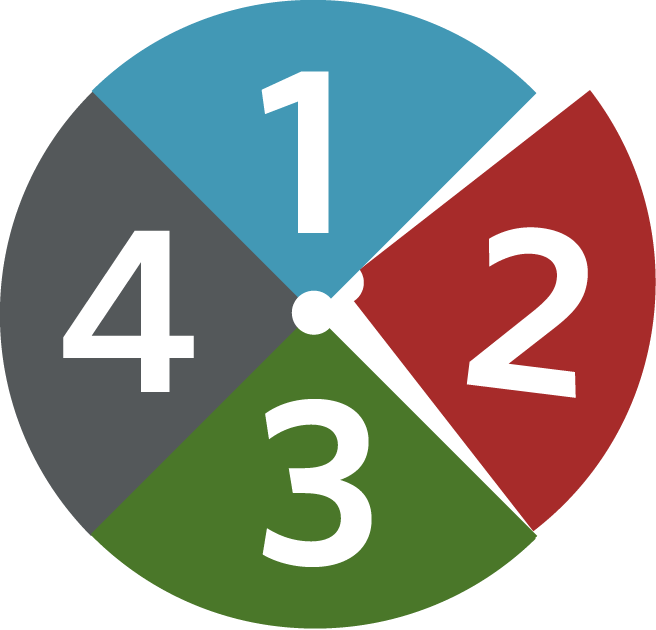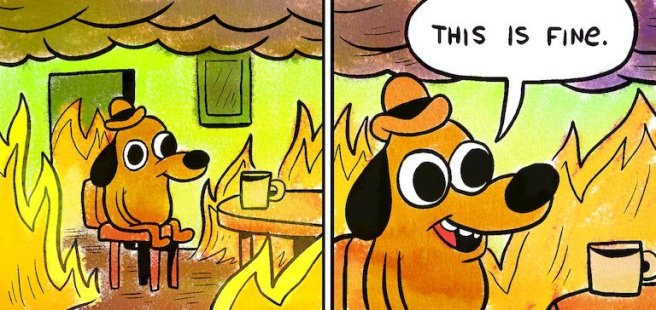Let’s get to the shittiest side in all of this. Among the crappy things I’ve done, to avoid making a decision, is – diverting, controlling narratives, dodging questions and even telling lies to avoid anything that involves having to make a choice. Because, making any decision of consequence, as I’ve said before, for me is – internally wrenching and overflowing with pathological doubting (furthermore fueled by diagnosed Social Anxiety and it’s effects on me about outward perception). It’s never a simple “yes” or “no” answer with me (I’m sure friends and others can attest to that) because that requires making – a choice. It’s not fun to admit even if I’ve come to terms with it. Yes, I’ve more than diverted or dodged questions and have been, very rightfully, called out on it by several people. It’s created larger problems for me and others, because I wanted to avoid “tough talk”, “take action” and I’d do anything to avoid decision-making and stress (You could ask the following – Why is he still unmarried? Why doesn’t have kids? Why does he still rent? etc.). So, I’d change subjects, act like every thing is just “fine”, crack a joke, and put off any real talk…and if lying buys me time, then…I’ve done that. Lying for me is not an ongoing constant but even if it just ends up being a few, large or small, then how does someone else determine what is and isn’t the truth, coming from me? It doesn’t matter if its done for reasons of not “hurting others feelings” because the act of lie is, in fact, hurting others.
Here’s a true situation – a friend asks “Hey, let’s do something tonight”. Rather than just say – “No” or “Yes” and leave it at that, I might instead say – “I’m not sure, I’m not feeling so well, so I don’t think I will do anything later…but I might feel better. I’ll probably let you know.” This avoids commitment and confrontation by not having to explain a definitive “no” but still keeps the option open and, presumably, makes the decision easier by not actually making one. However, it boils down to one simple fact – It’s horribly wrong. It is – a lie. Maybe if someone’s life is in jeopardy, but other than that – it’s inexcusable. Now, imagine if stakes are higher. You don’t want to confront that uncomfortable feeling of non-stop internally looping anxiety and decision-making, because you will try to find that obsessive “100% answer” (which does not exist), so you try everything in your power to “kick the can”, put it off, or compartmentalize, to avoid that horribly uncomfortable mental position (yeah, fucking selfish huh?…but it’s out of your control and you don’t even truly know it’s occurring or why you do it). But the more you avoid, the more it builds…and builds…and builds…This is what, left untreated and what my unacknowledged OCD can and will do. That rumination and doubt can ruin just about everything you hold dear, even if you feel you know the answer in your heart…it’s just that your brain won’t allow it because it’s stuck in a perpetual spin-cycle of anxiety and obsessing about uncertainty. I can…unfortunately…attest to that ugly truth.
All of these methods of avoidance, are sooo tempting because it “buys you time” and relieves you of that rocket-fueled anxiety…temporarily…that is until your ass has to cash that check. Well, now you’re right fucked, you quite possibly will ruin things, and often end up hurting others in the process. How can you regain trust? Well, you can’t and never will and that’s the price you pay, no matter if you assign it to OCD, Anxiety, or what not. It’s a simple fact…and it sucks.
This is the first thing I have approached, hence why I’m writing this blog. If you know me at all, you know I’m not an open book and if you ask me my about my feelings, what my plans/goals are or what makes me tick…I avoid…I get anxious. If you’re sitting right across from me, and I’m telling you how I’m really doing, my anxiety will spiral up, I’ll likely stumble over words and feel the need to do stress-relieving compulsions (tapping, blinking, visually tracing symmetrical patterns on the wall, even number movements, etc.). It’s tough because making decisions and sharing internal thoughts (both of paramount importance in your day-to-day relationships) can be extremely uncomfortable and, up till recently the causes were, frankly, invisible to me (see: GI Joe post).
When I constantly second guess and doubt even the smallest of things, I’ll seek to delay and find relief at any cost. In it’s way, putting off a decision is related to the whole routine of checking for spiders, worrying about goofy 70’s demon possession movies or number counting and nervous tics. It’s about seeking relief, a fear of the unknown and avoiding “taking a chance”. You see, OCD has physiological ties into decision making issues, which is where some people get things like compulsive house cleaning, lock checking or hoarding. For instance – Lock checkers aren’t 100% sure they locked the door, compulsive non-stop cleaning is someone cannot be convinced something isn’t 100% clean and Hoarders keep things because they lack an ability to decide, 100%, whether or not they should keep something. But life is full of doubt and nothing is 100% but with OCD you are obsessed with 100%, not 99% but 100%, without any anxiety-riddled doubt. So, these physical mechanisms you notice with shows, films and book characters like Monk, The Aviator, Poirot, or As Good as it Gets are true, it’s just that I (and others) internally “check” things more than physically. BTW, honestly, I used to be a bit of a hoarder. Among the things I collected were car magazines…I’ve now thrown out a ton.
On an positive note, just being open and honest with what is going on, I found it strengthens bonds with friends and family because now I don’t avoid questions that I couldn’t answer before. Example – My sister remarked, when I finally was being up front and unloaded on her, she said – “Finally, you’re showing some passion”…translation? – “You’re being honest, real and not dodgy”. It floored me. I thought she’d be pissed because I basically yelled at her which is not my default response. I didn’t just act like everything was fine, crack jokes to divert attention, or lie. (It wasn’t about her though, just about what I had been thinking about after she kept pressing me).
In some cases it’s actually more amusing than anything else – Say you had a large lunch and your gut makes noises, people always ask – “Are you hungry?” The typical answer is “Oh, yes, I’m hungry”. Now, I just acknowledge that it’s probably a brewing fart – “No, I already ate, it’s intestinal issues.” Or when my boss asks me “Did you have a fun weekend?” and I didn’t have a good weekend, rather than say “It was good” I just remark – “Nah. Personal stuff” and walk away and leave them without a “good” response. Much better than saying you had a good weekend when you might have had a lousy one. And “honestly” my boss? Screw ‘em.
I can’t be absolved of all my doings. It, sadly, is what it is. All I can do is…better. I owe that to you, my friends and family, my coworkers, people I interact with daily and even…myself. In the absolute end, and as mentioned earlier – No matter what I’ve said in this blog and whatever the reasons for my actions, I know one thing – if I’ve lost someone’s trust and hurt them, I am nothing if not truly sorry and apologize to them and to you. Simply, the buck stops here…with me.











